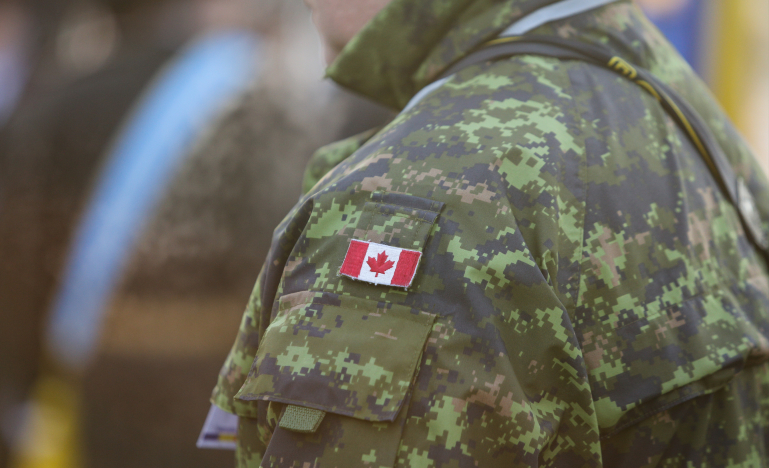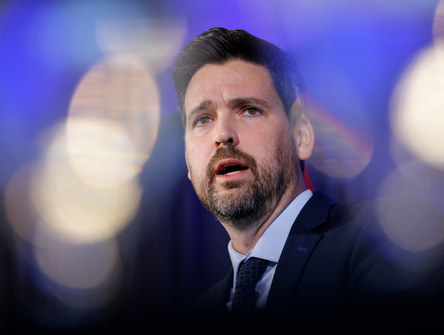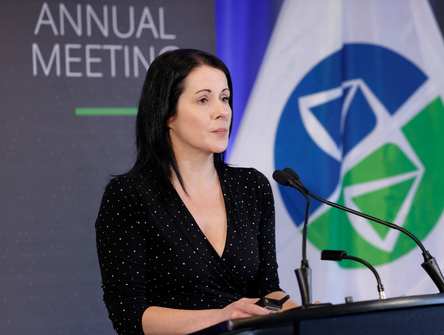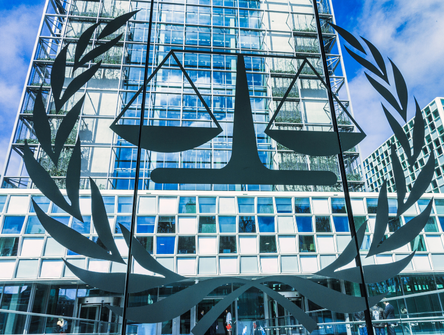Who should try the soldiers?
A case for abolishing the criminal jurisdiction provided to military tribunals.

When former Supreme Court justice Louise Arbour delivered her report on sexual misconduct in the military in May, she recommended that all military sexual assault investigations be transferred to the civilian justice system.
"The handling of sexual offences by military courts over the past 20 years has done very little to improve efficiency, discipline and morale. If anything, it has served to erode it," she told reporters.
"Therefore, I see no basis for the Canadian armed forces to retain any jurisdiction over sexual offences and that jurisdiction should be vested exclusively with civilian authorities."
But should it stop there? When asked if there are other areas of jurisdiction that should be moved out of the military justice system, Michel Drapeau chuckles.
"How long do you have," says the retired colonel, who is now a military law professor and practitioner.
Most of the National Defence Act (NDA) is comprised of the Code of Service Discipline, which is the basis of the Canadian Forces military justice system. It provides a range of offences unique to the military, including disobeying a lawful command, absence without leave and mutiny.
It provides for two types of military tribunals. The first is a summary trial, which is presided over by a commanding officer who has broad authority to act as a judge and sentence people. The second is a court-martial, by judge alone or with a five-member panel of officers chosen by the military.
While Drapeau has no issue with the military handling discipline and military offences, especially when operating abroad, he says it should not have criminal jurisdiction.
Section 130 of the NDA incorporates Criminal Code offenses, and the possible punishments, unique to the military, include reprimand, loss of seniority or rank, confined to barracks and dishonourable release.
What concerns Drapeau more is the complete lack of independence of the judges and panel members who try soldiers charged with serious crimes.
"You expect the judge to be free and independent," he says. "But somebody who wears a uniform and a military rank is subject to military discipline and subject to the chain of command – (a far cry) from what we expect in terms of a judicial standard."
Both the prosecution and the defense are responsible to the Judge Advocate General (JAG), who is also a military officer subject to the same code of conduct and chain of command. Their legal experience is in military law.
"They don't have the training or kind of broad experience and expertise that Superior or Provincial Court judges acquire over the years," Drapeau says.
It's created two systems of justice in Canada, which he thinks is unfair to the accused. To say it's also unfair to the victim is "an understatement." Section 18(3) of the Canadian Victims Bill of Rights states that a victim of a crime that's investigated or prosecuted under the NDA is exempt from the protections offered by it. That means a civilian assaulted by a soldier in a public setting would see the matter investigated by military police and go before a court-martial, but without the rights they'd have in civilian courts.
Retired major Kashmeel D McKöena, a former JAG lawyer who is now in private practice, says there's no reason military leadership who are not trained to deal with criminal matters should be deciding the fate of members they also control.
"The point of a Criminal Code is that no one is above it. Everyone is subject to it," he says. "But when you carve out certain parts of criminal activity and you give it to the generals, that's part of the problem."
McKöena says what's particularly shocking is that to prosecute a general, you must have someone who is senior to that general.
"You can't let a junior officer prosecute a senior officer. That's the rule. So automatically, if you want to commit a crime in the military, just become a general. You can't be prosecuted."
McKöena points to retired Gen. Jonathan Vance, who had a sexual relationship with a subordinate while chief of defence staff. He was investigated, but the military couldn't prosecute him for that. He was only charged with the civilian offence of obstruction of justice after he resigned.
"He was not actually prosecuted for the crime he was accused of obstructing justice in," McKöena says. "Just think about that for a second."
In their recent book "Military Justice in Action: Annotated National Defence Legislation," Drapeau and co-author Justice Gilles Létourneau, formerly with the Court Martial Appeal Court and the Federal Court of Appeal, call for the creation of a criminal division at the Federal Court for military personnel.
"The court already looks at military issues and they have a complement of judges who are trained and independent," Drapeau says.
"To my mind, we should transfer the whole thing or at least abolish the criminal jurisdiction we provide to the military tribunals simply because the two don't mix. Military members who are subject to their jurisdiction don't receive the same independence, the same quality, the same type of treatment that any other Canadian does."
Globally, Drapeau says the trend is to transfer judicial competence from military to civilian courts.
After the Second World War, Sweden, Austria and Denmark did away with their court-martial systems. The Czech Republic followed suit in 1993, while France abolished its military tribunals in peacetime in 2012. In 2003, Belgium suspended military jurisdiction during peacetime. A repeal of military jurisdiction and a return to ordinary courts of law has also happened in the Netherlands, Germany and Lithuania. Moldova, Kyrgyzstan, and Ukraine abolished military courts in 2010, as did Belarus in 2014.
Drapeau doesn't sense any interest in following suit in Canada, however.
"There is so little discussion in academia and even less in parliamentary circles about military law here," he says, even compared to Britain and the United States, where elected officials are far more involved in military oversight.
McKöena also doesn't see it happening any time soon.
"Institutions like the Canadian Forces will not fall overnight and they have way too many stakeholders whose interests and needs to have control won't allow that to happen smoothly."
But given the current trouble with retention and meeting recruitment targets, Drapeau says the military is facing "a critical, existential crisis."
"The time to fix it is now. I don't think the military can afford to have another justice appointed to do another study."
A request to speak to Rear-Admiral Geneviève Bernatchez, the Judge Advocate General, was denied. In a statement, the military said it will "quickly analyze" how best Arbour's recommendations can be acted upon and will engage with stakeholders, survivors, defence team members and more.
"We are not conducting interviews on this topic at this time, as work is only now beginning on this very important task."


